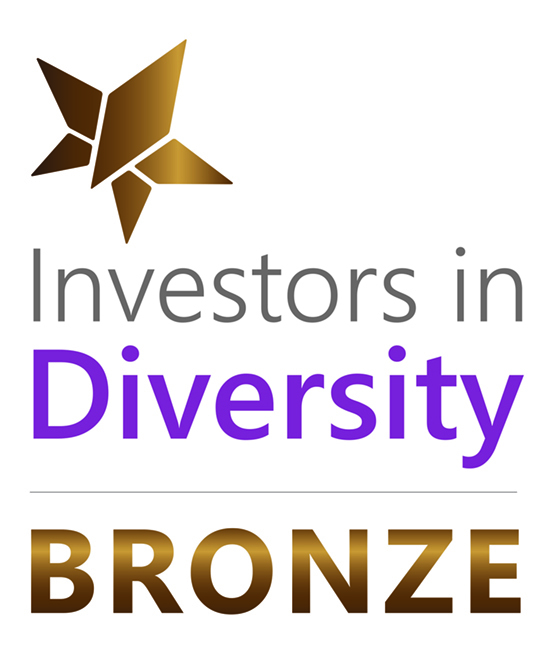Rethinking Assessment
This became particularly evident during the COVID-19 experience, which necessitated a renewed focus on the purposes of assessment, the significance of learning outcomes and the means by which they can be demonstrated.
QQI aims to maintain and build upon the momentum that the COVID-19 experience has generated in assessment. In partnership with the tertiary education sector, we wish to stimulate a sustained and forward-looking focus on assessment to ensure that it keeps pace with the needs of contemporary learning contexts. Our Rethinking Assessment programme of activity seeks to inject fresh impetus in thinking about assessment, to encourage reflection, provoke debate, generate new perspectives and support innovation. Information on the key strands of the Rethinking Assessment programme is available below.
Rethinking Assessment Community
QQI has established a Rethinking Assessment Community hub on Microsoft Teams, the aim of which is to provide opportunities for people with an interest in assessment to network and share information on events and other developments that may be of interest. If you would like to join that community, please complete this form
Rethinking Assessment Events
Let’s talk about assessment 2023: rethinking assessment in higher education - Monday 30 January 2023
Rethinking Assessment Feedback Masterclass: Professor Phillip Dawson - 20 June 2023
Grant-aided projects
In 2022, QQI marked its 10th Anniversary with a call for grant-aid proposals to help build momentum in assessment scholarship and/or professional development relating to assessment in the context of the National Framework of Qualifications (NFQ). There was a strong response to the call and thirty-four applications for funding were received. Following an evaluation process, eight of these were selected for grant-aid, with awards totalling €374k.
In grant aiding projects, we are interested not only in the discrete project outcomes but in fostering a growing community of practice in this area and in making an impact on the professional development of staff involved in assessment in the context of the NFQ.
We congratulate the recipients of grant aid and look forward to the successful completion of the 8 projects:
Lead researcher: Prof Marie Clarke
Institution: University College Dublin
Award Amount: 60,000
Project Outline: The challenges faced by higher education institutions in transiting to online teaching and assessment during COVID-19 is well documented in both the international and Irish context. Evidence is a critical component in the development of new approaches in changed contexts and this requires institutions to revisit assessment discourses and reflect on the structural and contextual issues that impact on assessment, academic integrity and ethical practice. This study using a research evidential base will form part of an institution wide focus on reframing assessment and addressing the issue of academic integrity and ethical practice.
Lead researcher: Dr Andrew Gibson
Institution: Trinity College Dublin
Award Amount: 47,045
Project Outline: For those working and studying in Irish higher education, the rapidly expanding range and types of academic misconduct are prompting renewed institutional and sectoral efforts to safeguard academic integrity. Central to dealing with such a critical topic is understanding what those working and studying in Irish higher education know and believe about academic integrity. This project will evaluate the challenges, costs, and benefits of adapting the ICAI-McCabe surveys of faculty and student attitudes and beliefs about academic integrity for use within the HEI sector in Ireland.
Lead researcher: Dr Susan Gottlöber
Institution: Maynooth University
Award Amount: 32,505
Project Outline: This project aims at investigating the importance of using UDL principles for designing authentic assessment. Planned as a staff-student partnership students organised into focus groups, the PI, and a research assistant will investigate the importance of the combination of UDL principles and authentic assessment as a preventative measure against Academic misconduct. Participants will be chosen from a variety of backgrounds, including students who have had experiences with academic misconduct investigations. While not solely intended for the humanities, the focus of this case study will be on the humanities as traditionally heavily text-based and thus less likely to use authentic assessment.
Lead researcher: Dr Jen Harvey
Institution: Technological University Dublin
Award Amount: 49,976
Project Outline: Working in consultation with Professional Statutory and Regulatory Bodies (PSRBs), academic teams, and students, the project aims to develop a sustainable approach to embedding authenticity within Assessment for/of and as learning processes across a programme. Aligning to the TU Dublin Authentic Assessment Framework and its four dimensions of Realism, Cognitive challenge, Critical reflection and Feedback processes, the proposed work develops the concept of a programme-based Continuum of Authenticity (National Forum, 2019). The project aims to collaboratively design a mapping tool and associated policy that will guide and inform the incremental development of authenticity across a programme from a student’s early engagement with the profession in first year to the successful completion of their final year and transition into their career of choice.
Lead researcher: Dr John Meegan
Institution: Hibernia College
Award Amount: 34,250
Project Outline: This project will design and investigate the use of a technology-enhanced simulation as an integrative authentic assessment approach on a blended learning professional programme. The Hibernia College School of Education (SOE) academic team, the Digital Learning Department (DLD) and the Department of the Registrar will design and implement a technology-enhanced scenario-based virtual site of practice (VSoP), to support the assessment of programme learning outcomes on a professional programme. This simulation will act as a bridge between assessed experiences in real sites of practice and academic and professional studies. It will provide learners with the opportunity to develop skills and competencies prior to entering the placement setting. Learners will be assessed on these skills in a simulated environment, enabling consistency, efficiency and transparency in assessment practices.
Lead researchers: Dr Cormac Quigley and Dr Etain Kiely
Institution: Atlantic Technological University
Award Amount: 59,651
Project Outline: This multidisciplinary collaborative project (3 Irish and 1 Canadian University) will develop an innovative STEM assessment toolkit to provide immediate, adaptive and detailed feedback. The open-source sophisticated assessments developed will provide reliable and authentic learning opportunities. Learners will analyse their real-world measurements, collected themselves in STEM investigations across NFQ levels. Using algorithmic correction rather than fixed answers allows for feedback on validity of technique rather than absolute correctness. This free assessment resource integrates within VLE environments and scales to large groups and multiple device formats. Captured data enables learning analytics research and insights into learner skills development across NFQ levels.
Lead researcher: Dr Sinead O'Sullivan
Institution: University of Limerick
Award Amount: 54,736
Project Outline: The higher education landscape has changed significantly with the introduction of a broadening range of programmes and award types and multiple forms and settings for assessment. The ExPERa project which is a collaboration among the Quality Officers Group of the IUA aims to review the purpose and practice of external examination of taught programmes across nine-degree awarding bodies with a view to informing future practice. The project will examine the alignment between the purpose of external examining of taught programmes as set out in quality assurance policies and procedures with the experience of external examiners and academic staff and will : 1) Examine the role of external examining and external examiners across the participating Universities; 2) Evaluate the alignment of the role of external examiner with the intended purpose of the examiner role, as outlined in institutional polices; 3) Explore ways to develop further the role of external examination to have a greater focus on quality enhancement while preserving the integrity of assessment and academic standards.
Institution: Dublin City University
Project ID: DCU20231
Award Amount: 35,500
Lead researchers: Dr Monica Ward and Dr Fiona O’Riordan
Brief outline of the project: This project will evaluate a model being used in DCU to support a robust and evidence-based assessment method to promote academic integrity – Interactive Oral Assessment (IO). IOs are a fair, reliable and viable alternative to traditional assessment. In collaboration with Griffith University, DCU have successfully adapted the framework designed and tested by Griffith University to successfully roll out IO across the DCU. In this project we will use research, and the experience of using IO in DCU, to develop a model which can be used in other innovative assessment methods to promote academic integrity being considered by Higher Education Institutions (HEI).


